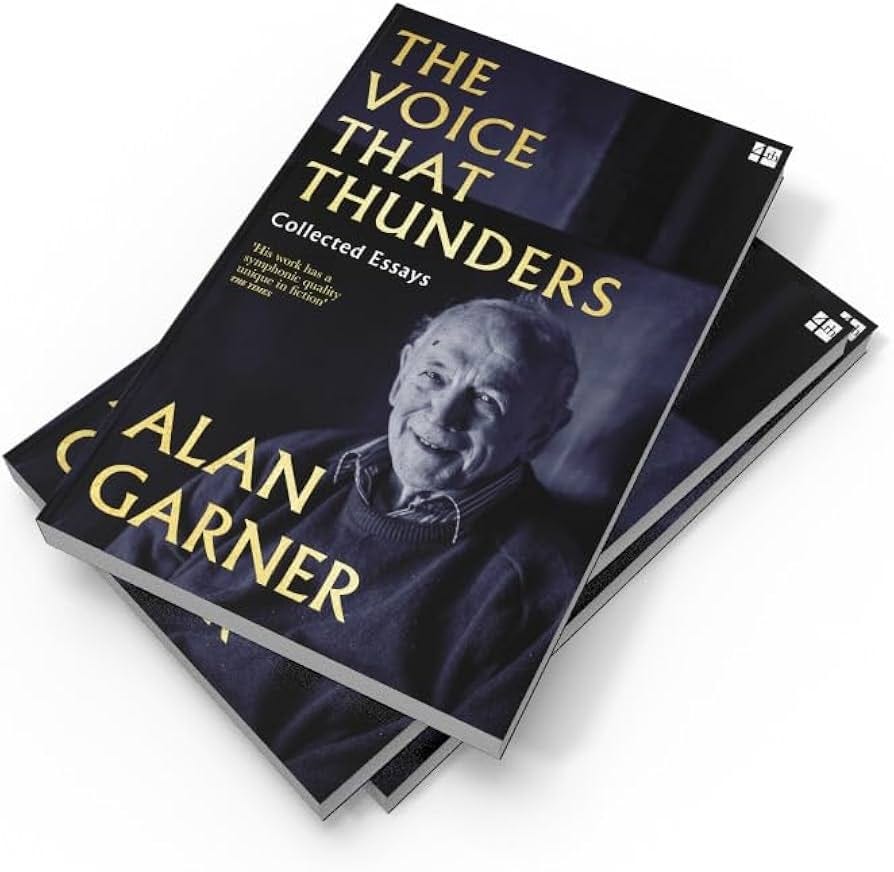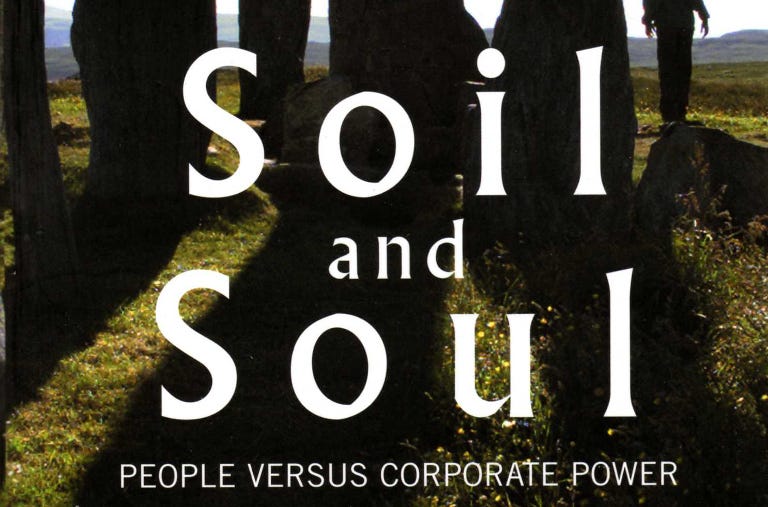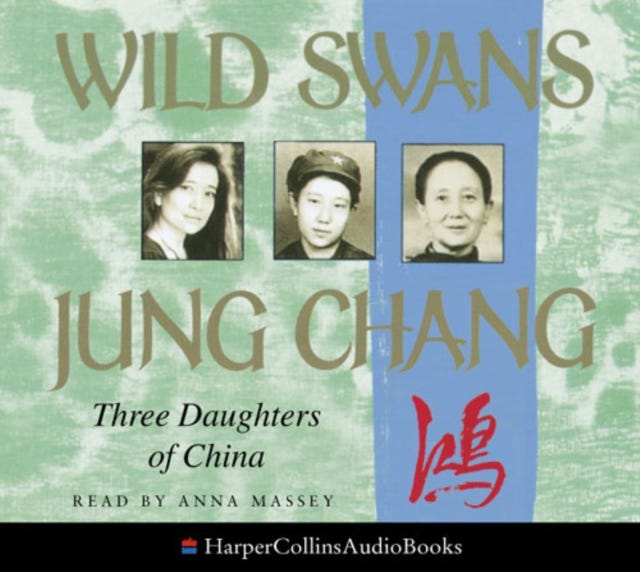Books That Built Me
The 10 most life-changing non-fiction books I have ever read
The categorisation of books as ‘non-fiction’ has always been unsatisfying. Things should be defined more by what they are than what they are not.
Further to my piece about all-time favourite novels, these are ten books that set me on the path I have taken. They range from a screenwriting guide, to an intergenerational memoir, and together they bring together every subject from economics to ecology to theology to geography to philosophy.
1. ‘Story’ by Robert McKee (read in 2000, age 16)
I bought this shortly after my sixteenth birthday. I had GCSEs coming up, but already knew what I wanted to dedicate my life to – writing. McKee’s book helped articulate why novelists and screenwriters had come to be so respected.
Standout quote: Traditionally humankind has sought the answer to Aristotle's question from the four wisdoms - philosophy, science, religion, art - taking insight from each to bolt together a livable meaning. But today who reads Hegel or Kant without an exam to pass? Science, once the great explicator, garbles life with complexity and perplexity. Who can listen without cynicism to economists, sociologists, politicians? Religion, for many, has become an empty ritual that masks hypocrisy. As our faith in traditional ideologies diminishes, we turn to the source we still believe in: the art of story.”
Throughout further education and higher education, I did screenwriting and creative writing modules at every opportunity. Unfortunately, the more thoroughly I studied it, the more I overthought it, and the worse my writing got. But there is a zen to these things, and I did eventually write well when I went past the point of trying. It was the kind of character development Robert McKee would have been proud of.
2. ‘Giving up the Ghost’ by Hilary Mantel (read in 2005, age 21)
The reading list for the Creative Writing & Personal Development Masters degree at Sussex University that I took from October 2005 till September 2006 contained some brilliant books. There was ‘Negotiating with the Dead’ by Margaret Attwood, one of the great books about the craft of writing; ‘The Feeling of What Happens’ by Antonio Damasio, which delves into the neuroscience behind the power of story; and ‘A Life of One’s Own’ by Marion Milner, which inspired me to keep a self-knowledge diary.
My thesis for this Master’s was on the theme of memoir, and among the many memoirs I read during that year, the standout was that of Hilary Mantel, when she was not yet a household name. It is full of the kind of writing I still aspire toward - Erudite, out-there, and accessible.
Standout quote: Truth isn’t pretty, I thought, and the pursuit of it doesn’t make pretty people. Truth isn’t elegant; that’s just mathematicians’ sentimentality. Truth is squalid and full of blots, and you can only find it in the accumulation of dusty and broken facts, in the cellars and sewers of the human mind
3. ‘A Short History of Myth’ by Karen Armstrong (read in 2006, age 22)
Grappling with my religion, or lack thereof, in my early twenties I devoured several books by Karen Armstrong. These included ‘A History of God’, ‘The Great Transformation’ about the Axial Age, and her memoir ‘The Spiral Staircase’. Religion and whether it was a force for good in the world was a red-hot topic in the aftermath of September 11th.
My favourite book of hers is the briefest, ‘A Short History of Myth’. Being young, well-read and unemployable, it helped cement my belief that writing stories mattered, and despite the minuscule chance of ever gaining a large readership, it was worth continuing to write in ways that tried to connect with people.
Standout quote: We are meaning-seeking creatures. A myth, therefore, is true because it is effective, not because it gives us factual information. If, however, it does not give us new insight into the deeper meaning of life, it has failed… “We need myths that will help us to identify with all our fellow-beings, not simply with those who belong to our ethnic, national or ideological tribe. We need myths that help us to realise the importance of compassion, which is not always regarded as sufficiently productive or efficient in our pragmatic, rational world.”
4. ‘The Universe Within’ by Anjam Khursheed (read in 2006, age 22)
In summer 2005 I did an internship selling door-to-door in the United States. The product was educational books, but the work was profoundly tedious. Like a soldier in a foxhole promising to find God, I told myself that as soon as it was over I would devour as much of human knowledge as possible.
The following year, in a second-hand bookshop I discovered ‘The Universe Within: An Exploration of the Human Spirit’ by professor of computational electron optics Anjam Khursheed. It has the kind of mixture of academic discipline and saucer-eyed wonder that I lap up.
Standout quote: Let us use an analogy. No amount of observation from outside a church will reveal the full colours and intricate patterns of its stained-glass windows. As long as one takes an exterior perspective, one will only see pale reflections of the images to be seen within. Likewise, the richness of mental qualities, their immediacy, their uniqueness, their purpose and meaning, all tell a story that can never be captured by external observation alone.
5. ‘Memories, Dreams and Reflections’ by CG Jung (read in 2006, age 22)
At the time I was reading Jung’s memoir, I was expected to start a career that paid well and was upwardly mobile. Like most people my age, the only jobs I had had up to this point were menial and minimum-wage. But high-status work seemed to involve things that were even more hellish - meetings, presentations, commutes, networking events.
Carl Gustav Jung became a high-status figure in his lifetime, but what mattered to me about this memoir was that it showed how to live a grand inner life. On the dust-jacket is a quote from JB Priestly, stating that he is ‘one of Western Man’s great liberators.’
Jung was in his eighties when he wrote it, but his observations about his dreams and childhood are still fresh. This includes the way he absorbed a Christian upbringing, and became able to shed the more toxic influences.
Standout quote: In the end the only events in my life worth telling are those when the imperishable world erupted into this transitory one. That is why I speak chiefly of inner experiences, amongst which I include my dreams and visions. Those from the prima materia of my scientific work. They were the fiery magma out of which the stone that had to be worked was crystallised.
6. ‘The Voice That Thunders’ by Alan Garner (read in 2007, age 23)
Alan Garner is a genius, and not just a literary one. When he was young, a chair at Oxford was his if he wanted it, but he decided to become a novelist instead. ‘The Voice that Thunders’, a book of essays and lectures showcases his polymathy, something that is subtly woven into his fiction.
Almost all of Garner’s fiction is set in his native Cheshire, and before becoming an author he studied Ancient Greek, which gave him a profound appreciation of the importance of myth. One of the kernels of wisdom in this book is the quote, ‘Legends have a way of leading to the truth’. Garner was born on a literary goldmine, but his body of work is only made possible by his genius.
Standout quote: “Is the way to a universality best found by going straight through one’s own being? It would seem so.
7. ‘Soil and Soul’ by Alastair McIntosh (read in 2007, age 23)
Alastair Macintosh is a Professor of Human Ecology from the Isle of Lewis, off the coast of Scotland. The full title of his best-known book is ‘Soil and Soul: People Versus Corporate Power’.
It delves deep into the native history of Macintosh’s hometown, and how the generally poor land has supported continuous human life since the Neolithic period. Macintosh’s reflections on the titular struggle against corporate power show that there is an alternative to nihilism, and not everything has to disappear into a stream of cashflow.
Standout quote: The mainstream manufactures people as a monoculture. It turns us out like cloned rows of apple trees on pesticide-manicured fields. The mainstream trains people by pruning. It forces growth in standardised ways. The song that we sing from the mainstream is thereby not our own song.
8. ‘Wild Swans’ by Jung Chang (read in 2007, age 23)
Memoir is just about my favourite type of book. My master’s thesis was a novel that involved multiple people sharing lived experiences. Jung Chang’s ‘Wild Swans’ is an important memoir, and much more.
Born in 1952, Jung Chang was a teenager during the Cultural Revolution, and was both a red guard and a sent-down youth. She was later one of the earliest Chinese to get the chance to study abroad after the country opened up post-Mao.
As well as her own story, this book contains that of her mother, who was of the generation that fought the Japanese in the 1930s and 40s and won the civil war to establish communist rule. Before that, there is the story of her grandmother, who was a concubine and had bound feet, and whose lifetime is well within living memory.
I read this book just six months after moving to China. I had gone there because I needed to be financially independent and learn new skills while figuring out how to eke out some kind of career as a creative oddball, and this was the most comprehensive history lesson I could have hoped for when it came to understanding my adopted country. It was a lesson that – despite the skyscrapers that sprung up like bamboo shoots and the sports-cars that pervaded the roads – China was still a poor and traumatised country.
Standout quotes:
(Mao) understood ugly human instincts such as envy and resentment, and knew how to mobilize them for his ends. He ruled by getting people to hate each other
9. ‘Black Lamb and Grey Falcon’ by Rebecca West (read in 2012, age 27)
Whereas fiction is one of the few fields in which megalomania is a good thing, the same cannot necessarily be said of non-fiction. However, factual writing can and does bring it all together.
As well as a grand inner life, West also had an eventful outer life, having tempestuous affairs with HG Wells and Charles Chapin. George Bernard Shaw wrote of her: “Rebecca West could handle a pen as brilliantly as ever I could and much more savagely.”
‘Black Lamb and Grey Falcon: A Journey Through Yugoslavia’ is nominally a travel book. It is also a history, a memoir, a philosophical essay, and one that extracts universal truths from local idiosyncrasies.
Standout quote: When Alexander and Draga (King and Queen of Serbia) fell from that balcony (murdered in 1903) the modern world fell with them. It took some time to hit the ground and break its neck, but its fall started then. For this is not a strictly moral universe, and it is not true that it is useless to kill a tyrant because a worse man takes his place.
10. ‘The Antidote: Happiness for People Who Can’t Stand Positive Thinking’ by Oliver Burkeman (read in 2014, age 30)
Self-help is about my least favourite genre of book. I was given several self-help books during that brutal 2005 internship, and none of them worked well. I concluded that positive thinking was often used to keep people deluded, obedient, and stupid.
That was before the expression ‘toxic positivity’ was in common use. Books like ‘Smile or Die: How Positive Thinking Undermined America and the World’ by Barbara Ehrenreich helped diagnose the problem.
And not all self-help books are bad. ‘The Seven Habits of Highly Effective People’ by Stephen R Covey was helpful, especially habit 5, ‘Seek first to understand, then to be understood’.
Borrowing from Stoicism, Buddhism, and Taoism, Oliver Burkeman’s ‘The Antidote: Happiness for People Who Can’t Stand Positive Thinking’, acknowledges the importance of a healthy dose of pessimism. I had long enjoyed Burkeman’s series in The Guardian: ‘This Column Will Change Your Life,’ and this wrapped up a lot of good ideas in one package.
Standout quote: “True security lies in the unrestrained embrace of insecurity - in the recognition that we never really stand on solid ground, and never can.”








